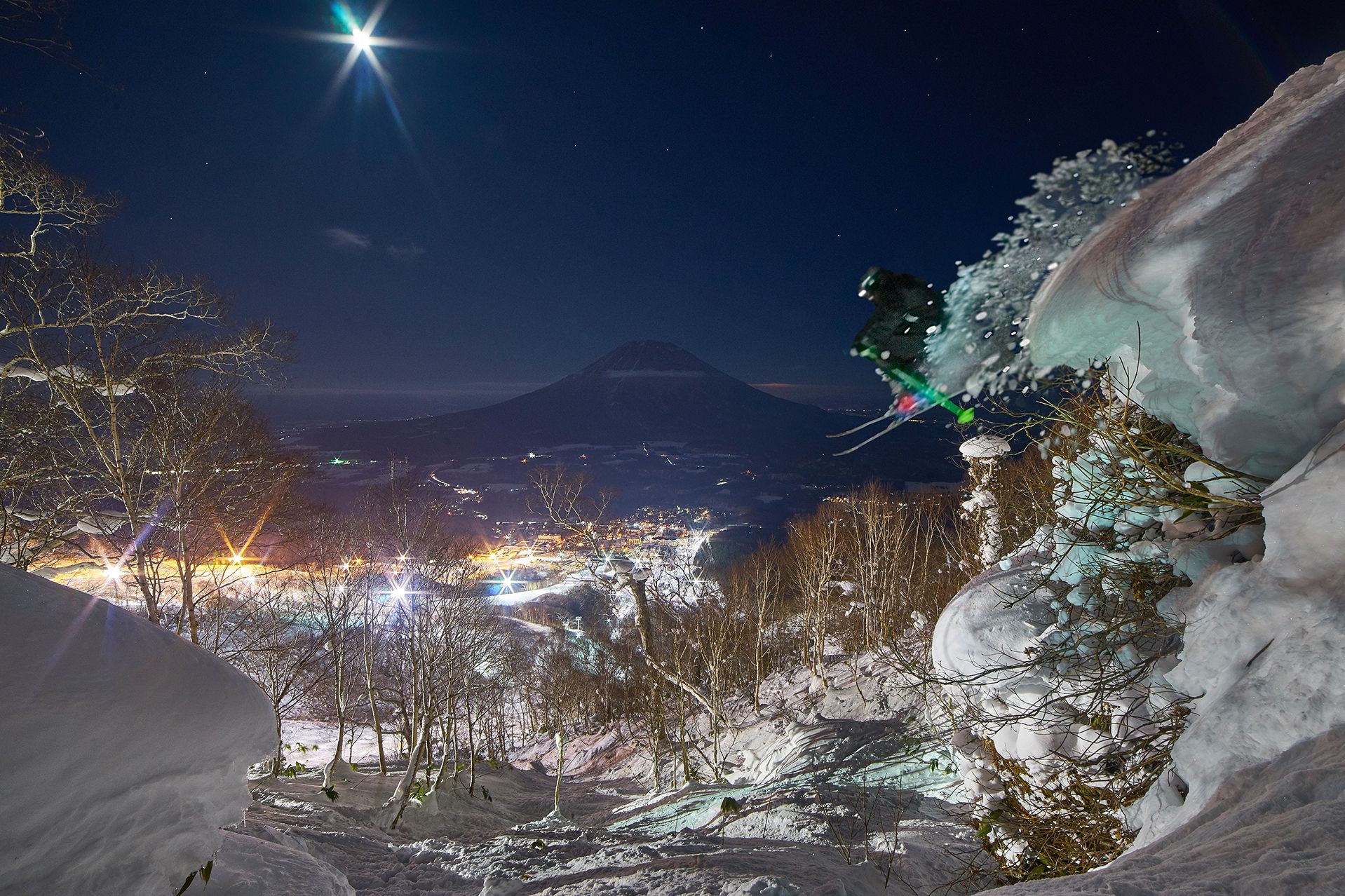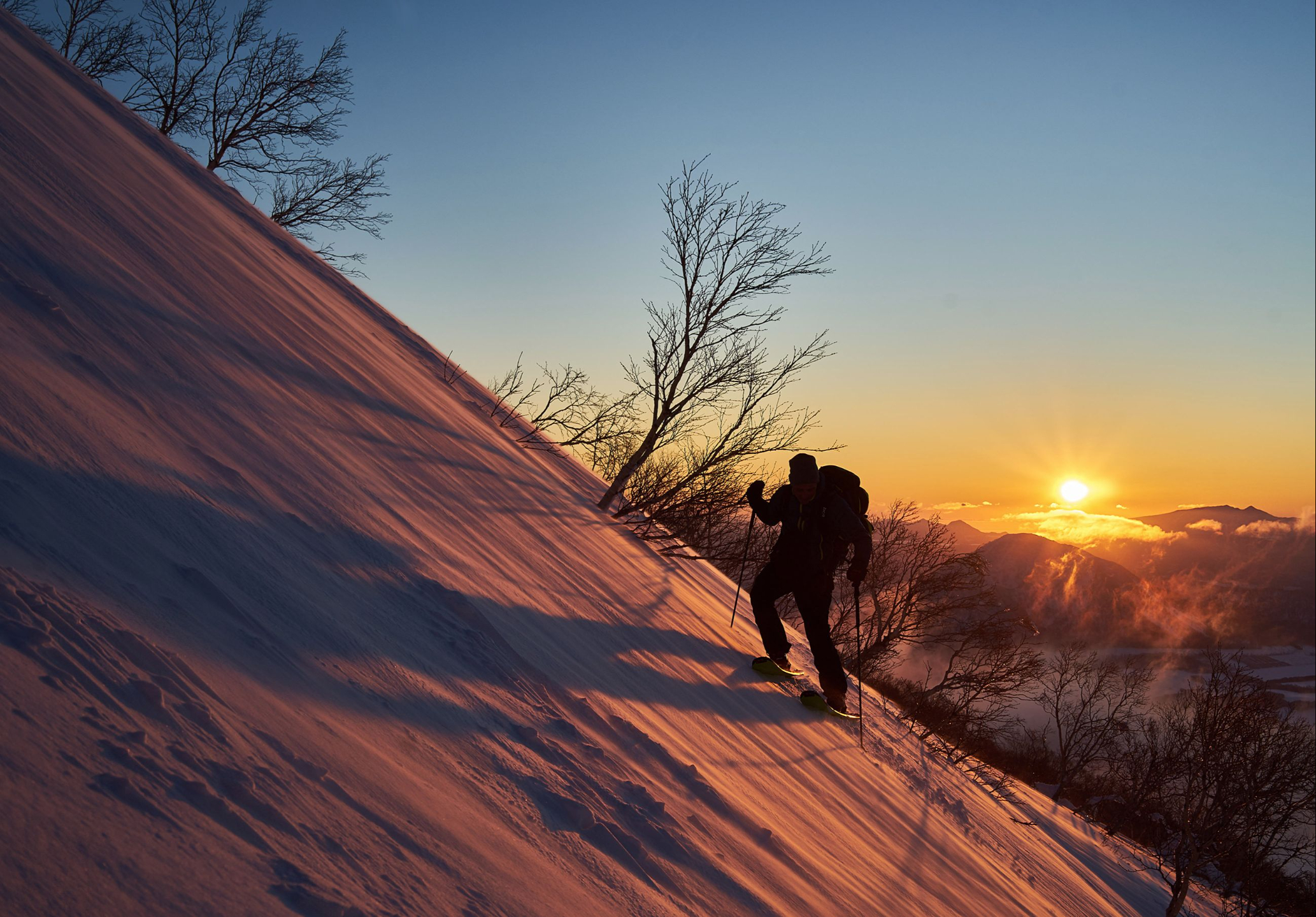ABOUT
Alpine Tutorials - George Treble
Hi folks, I'm George - the ski instructor and solopreneur behind Alpine Tutorials. Thanks for checking out my website - if you've come here to the about page, you may be wondering who is this guy and why should I take any notice of his advice? You'll find more information about my background and ski experience a few paragraphs down, but first I'll explain why I do what I do.
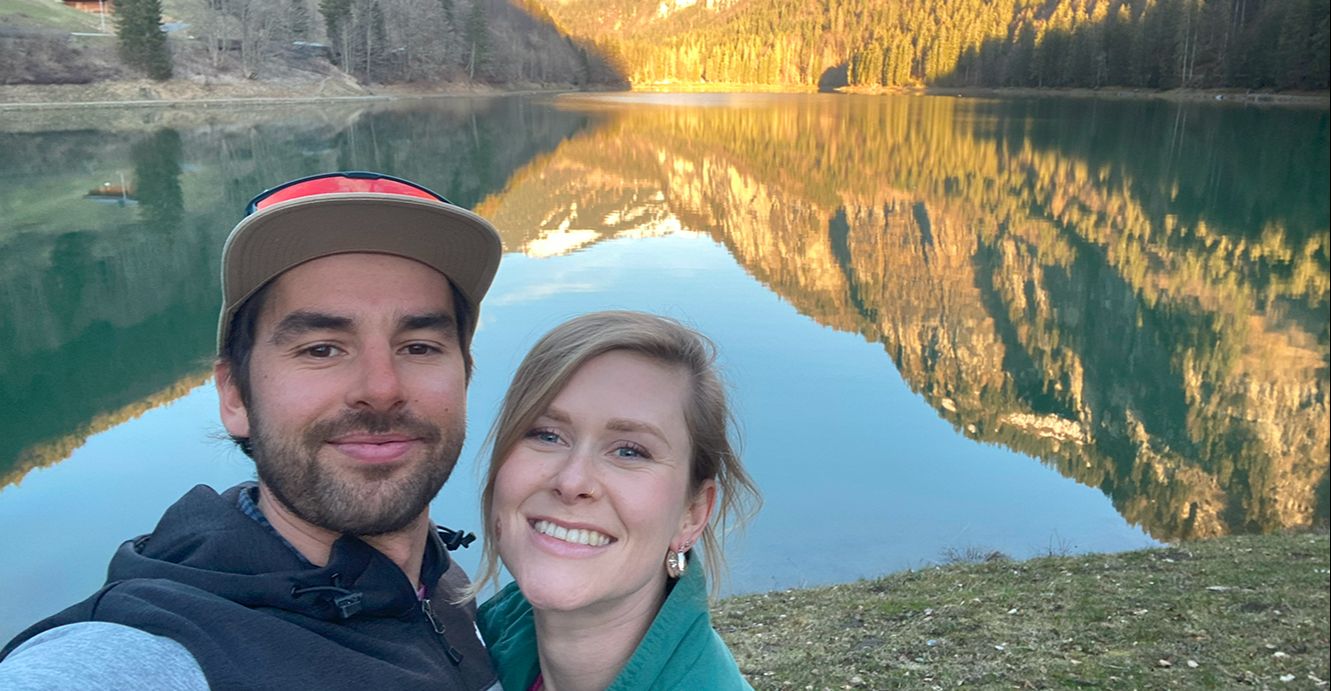
My mission, through ski instructing, is to help people have fun, experience joy, connect with nature and benefit from some good old fashioned fresh air and exercise.
It may seem simple, but I believe that a passionate hobby is the answer to some of life's bigger questions and I think outdoor mountain sports can be a force for good.
Of course, I have questioned my career choice many times over the past 15 years: Am I just a hedonist? Shouldn't I have more moral ambition? Is there something more meaningful I could be doing? Surely there are more important problems I could work on?!
Well, the good news is, after my most recent round of soul searching - I have decided I am right where I need to be.
Let's face it, 2025 is a scary time to be alive - climate change tipping points, exponential technological disruption and a precarious geopolitical landscape. There is plenty to be worried about and when you combine it with our always-connected smartphones, addictive engagement algorithms and a sensationalist negative press bias - it's tempting to fall into despair. The digital revolution is increasingly blurring the lines between virtual and physical reality and now more than ever - people need good outdoor hobbies. Preferably ones which connect them with nature, with each other, and dish up pure fun, joy and living in the moment. Skiing does all of those things and more.
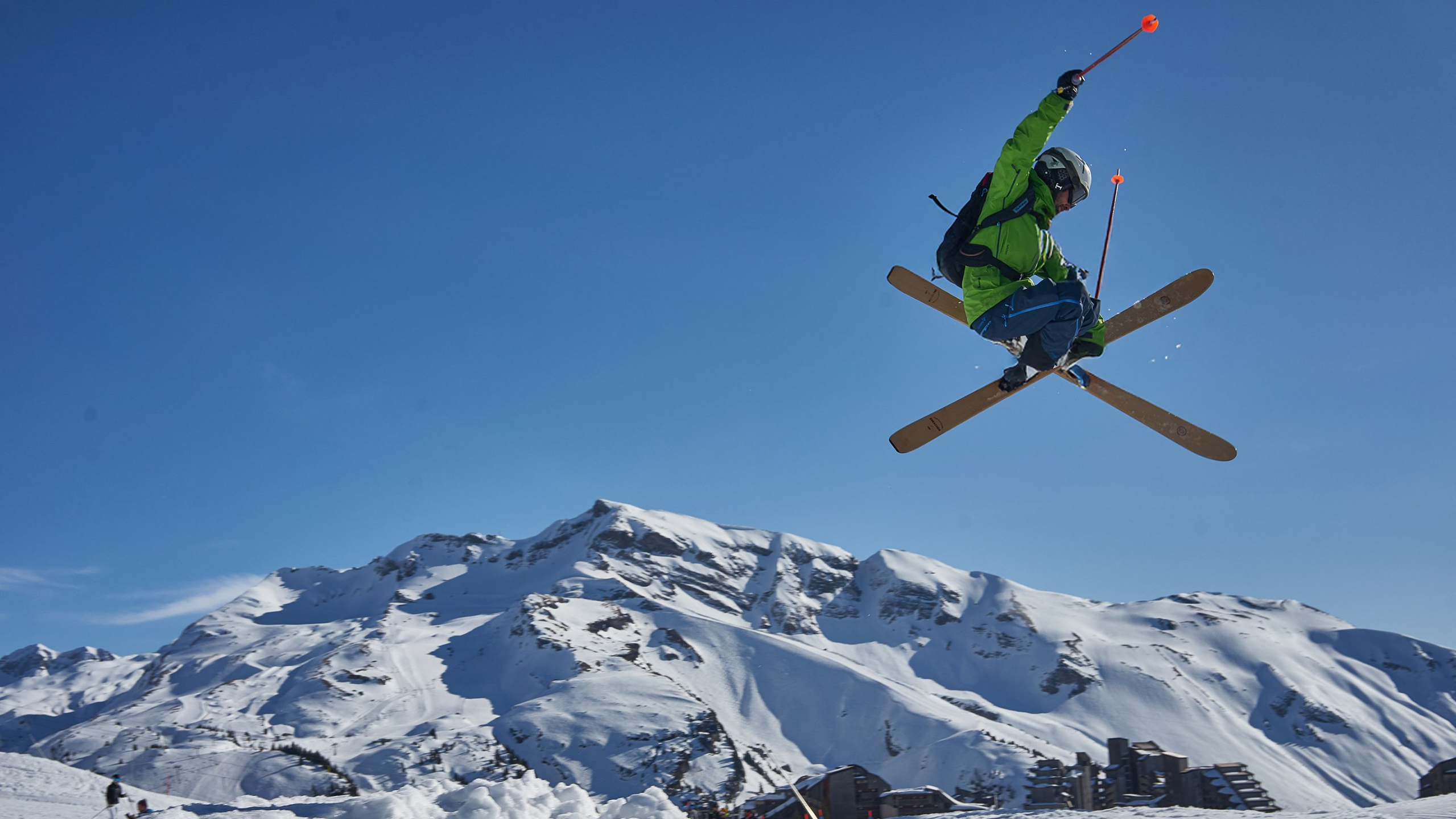
My mission statement:
1) To help people enjoy sport, connection, natural environments, fresh air, exercise, and to teach them how to do so safely. A lot of my ski instructing work is off-piste guiding, mountain safety and avalanche awareness training.
2) To use my platform and perspective to educate an audience about climate change solutions and positive steps we can take in the right direction. As someone who works in the mountains, I see first hand the shocking pace of climate change. However, I am still optimistic about the future and I believe a positive focus on solutions is better than a negative focus on problems. This summer I am hard at work on educational videos, website resources and local initiatives. Watch this space.

One thing I am certainly struggling with is witnessing the humanitarian horrors going on elsewhere in the world and I am particularly haunted by what is happening in Gaza.
Despite how dire the situation is, as well as others like Yemen and Sudan, Doctor's Without Borders (MSF) are still on the ground in some of the most dangerous places in the world, risking their lives to provide emergency medical aid in places where healthcare systems have collapsed. I am blown away by what this organisation does and is doing right now, and I want to help.
I have recently set up 'Skiers for MSF' - a fundraising initiative which I will promote ongoingly - encouraging those with the privilage to ski to show solidarity and donate to one of the most trustworthy and efficient humanitarian organisations out there. Donating to MSF can directly help the poor souls suffering in some of the worst crises right now, and I will be also be donating a percentage of my online course sales to them as well.
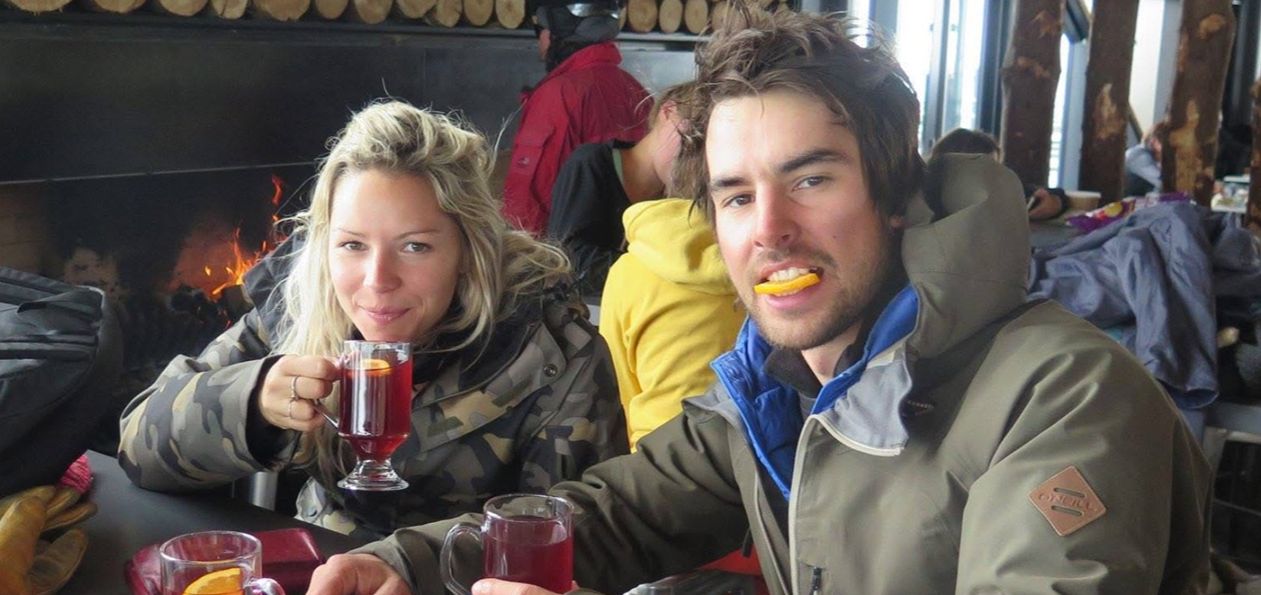
This is my sister, Katie, right before she went to work as an emergency doctor for MSF in one of the most dangerous places in the world. She has since written an incredible book about the experience which you can check out here.
I grew up in rural Devon, south west England, and was lucky to go to a sporty school and have great access to the outdoors. I was always playing team sports or out in the woods making dens and treehouses. Surfing was my first true love from a young age, although It's pretty much all outdoor sports in natural environments that I enjoy. As a 12 year old I got my first job labouring and gutting fish on a fish farm and I remember being stoked at £3 an hour. If I just did 5 hours working my hands to the bone I could afford a CD album! (I remember getting Americana by The Offspring as my first)
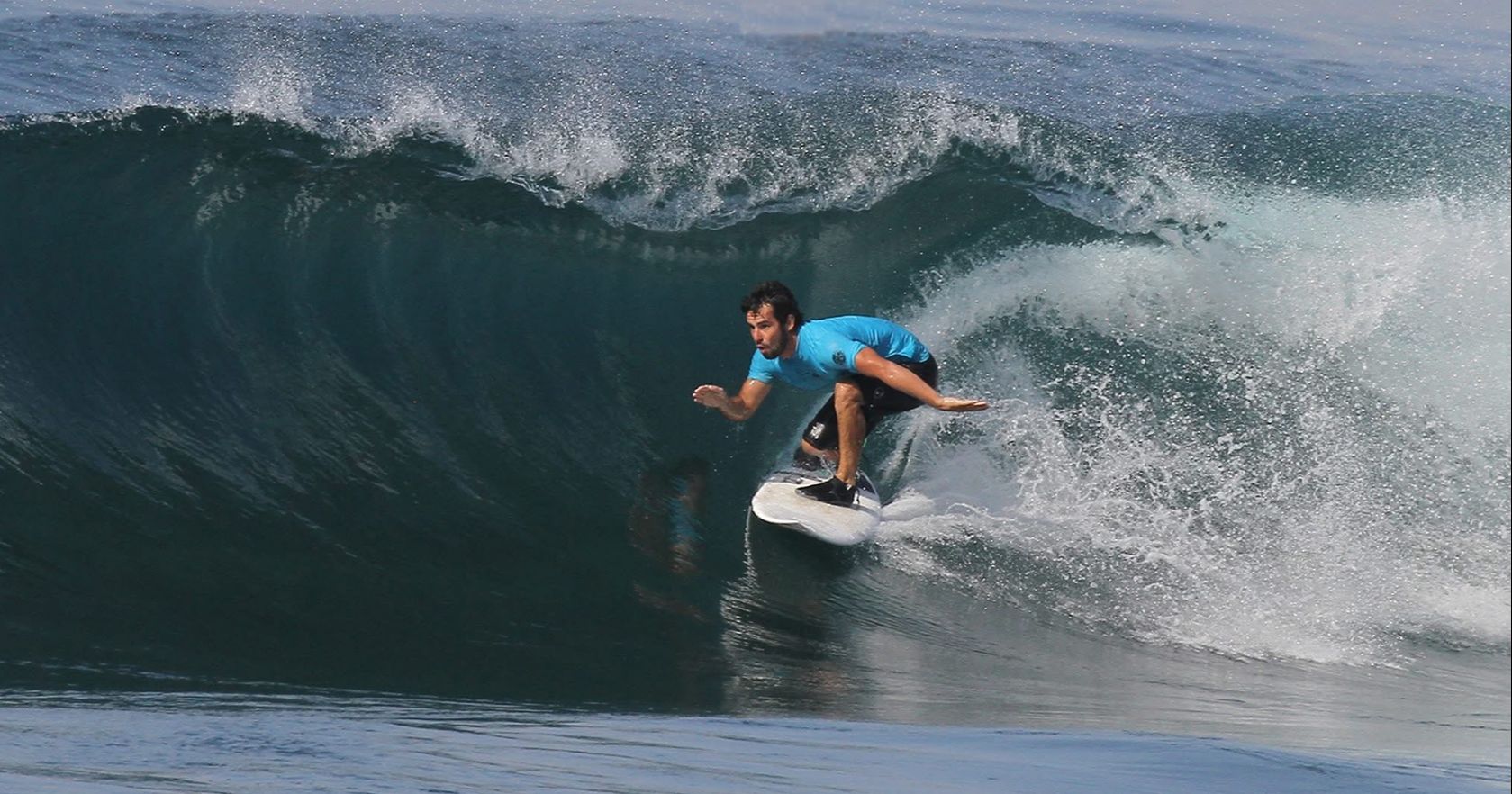
Being born in 1990 gave me the amazing perspective of seeing the world before the internet and phones and how it has changed so much since then (as well as being the same age as Harry Potter each year the books came out). I was academic enough to get a place at a decent University and managed a 1st class honours degree in Physical Geography from the University of Birmingham. I was interested in many things but had no idea what I wanted to do and after graduation, a careers adviser suggested taking an entry level job in urban planning in central Birmingham, so of course I fled to the Alps for a ski season. Just a gap year...
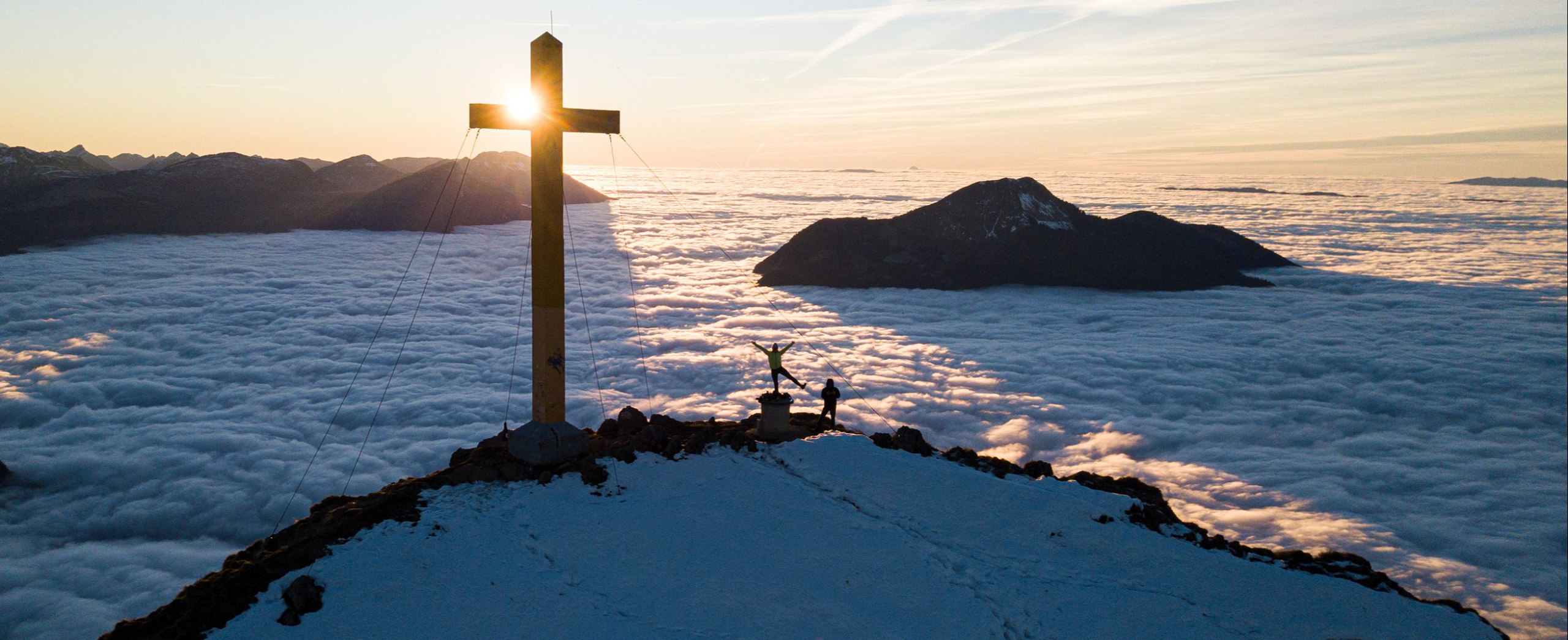
I was quickly hooked on the whole alpine lifestyle, not just the skiing. Hiking, photography and summit golden hours were a common theme. Here's a drone shot from the summit of Pic de Marcelly.
In order to pay for it I had two jobs - one servicing skis and customers at a ski rental shop, and another as a rep for Avoriaz Alpine Ski School. I had to be up the mountain first lifts every morning to do meet and greet at the ski school meeting point, but I had a couple of hours to ski before heading down for afternoon shifts in the rental shop.
The 2012/2013 ski season was a historically good one in the Alps, and I fell deeply in love powder skiing straight away. I was like a young dog on a beach with the zoomies, and my friends mocked me for my uncontrollable excitement when the conditions were good.
I had skiid a handful of times before my first ski season and turned up as an intermediate, but skiing almost every day for 5 months and being surrounded top-cert ski instructors in one of the world's biggest ski areas was a dream apprenticeship and I began to shed my many bad habits and techniques. I enjoyed the skiing and lifestyle so much, I decided to extend my 'gap year' and do a second ski season, as well as taking some ski instructor exams whilst I was at it.

In Alpine communities, skiing is a way of life and instructing is a respected profession as well as a highly regulated activity. In France in particular, they set an extremely high bar for instructors to qualify, and for good reason. There are around 130,000 ski related accidents per season in France and around 100 annual avalanche fatalities across europe. It's important that instructors and guides are highly qualified.
In order to be obtain the french professional licence, I had to obtain the International Ski Teaching Diploma (ISTD) which I was able to get through the British Association of Snowsport Instructors (BASI) system - and doing so was an absolute marathon ( I summarised the pathway I took in the image below, although this has changed slightly since I did it).
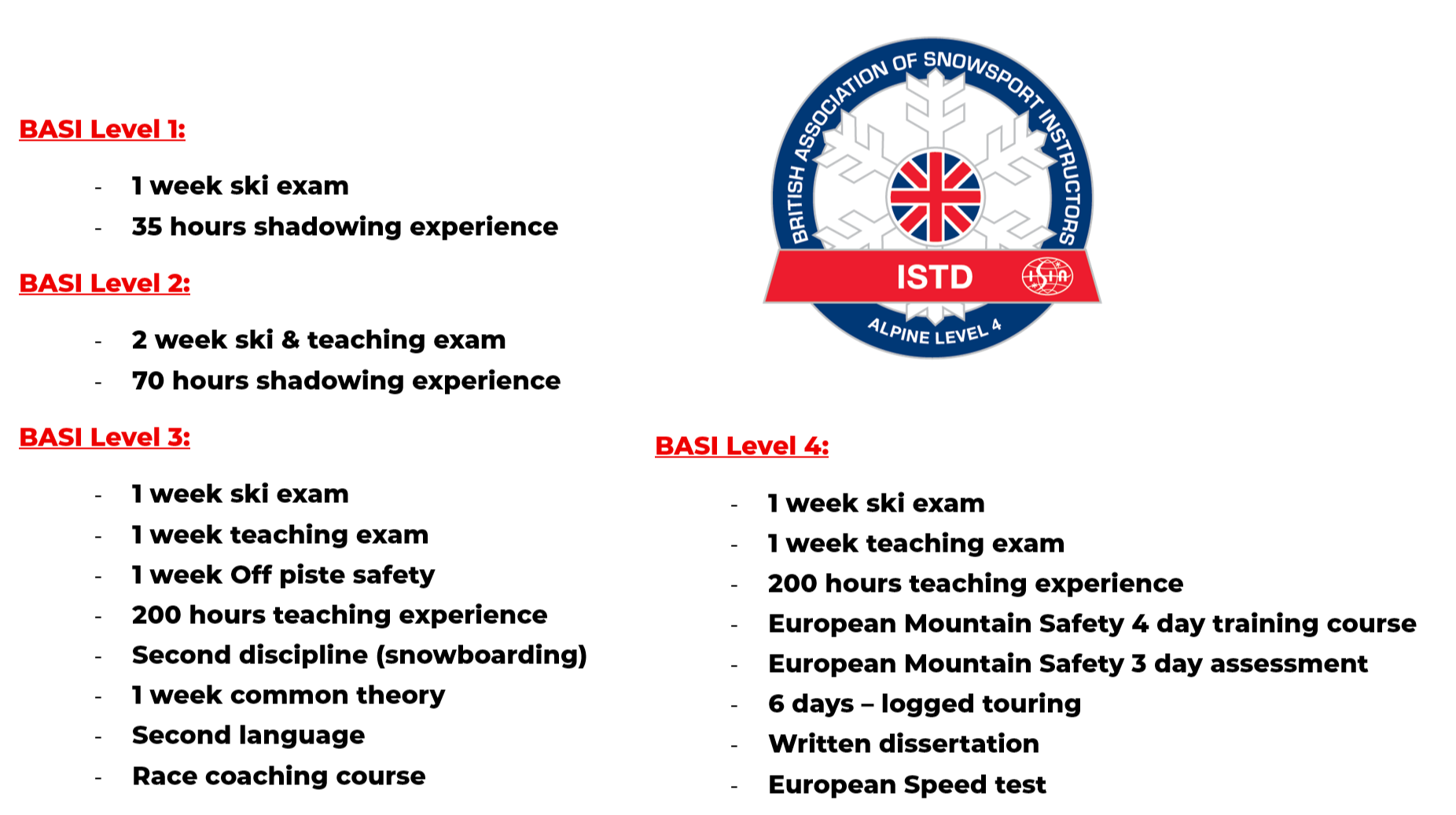
I have multiple friends who spent 10 ski seasons training and taking exams for this, only to fail to complete the pathway because the final exams are too tough to pass - specifically the European Speed test and the Level 4 technical ski exam.
Since there are many different national ski instructor pathways in Europe, they decided to have a way of calibrating skier ability from different systems with the infamous Eurotest.
This speed test is a Giant Slalom race and the pass time is set by professionals who 'open' the course. There are two openers from each nation and once their times and handicaps are taken into account, organisers are able to work out what time the best skier in the world would get on that course, and us poor aspirants would have to get within a percentage of that time in order to pass the exam. Gulp!
For those who grow up ski racing in the Alps from a young age, this may not be such a tough challenge, but for someone like me who never tried ski racing until my mid 20s, it was somewhat ridiculously difficult.
But the fact that it was such a hard process made the qualification more prestigious and all the more attractive to me, and I enjoyed a few seasons training like an athlete and doing everything I could to reach my potential on skis. After two failed attempts, I passed the Eurotest in the Dolomites in 2017 along with my level 4 technical exam in Val d'Isere. I did two summer seasons in Queenstown, New Zealand to get the 400 hour teaching experience, and then in February 2018, I finally qualified as a BASI level 4 in 2018 and had the licence to teach skiing in France. Crucially, I also managed to get my french residency status before the Brexit deadline to become what is sadly, at least for now, a dying breed of British instructors qualified to work in France. I worked hard, but ultimately, I was lucky to be in the right place at the right time, and I am acutely aware of my privilage - so now I am motivated to make it count.
This was the day I passed the Eurotest with one of my coaches Craig Robinson. Me and a few other aspirants shaved handlebar mustaches (goes well with my 3rd hand toothpaste green race suit, right?) and agreed we wouldn't shave them off until passing the test. One mate crashed and tore his ACL and, to his credit, kept the tash for almost 3 years!
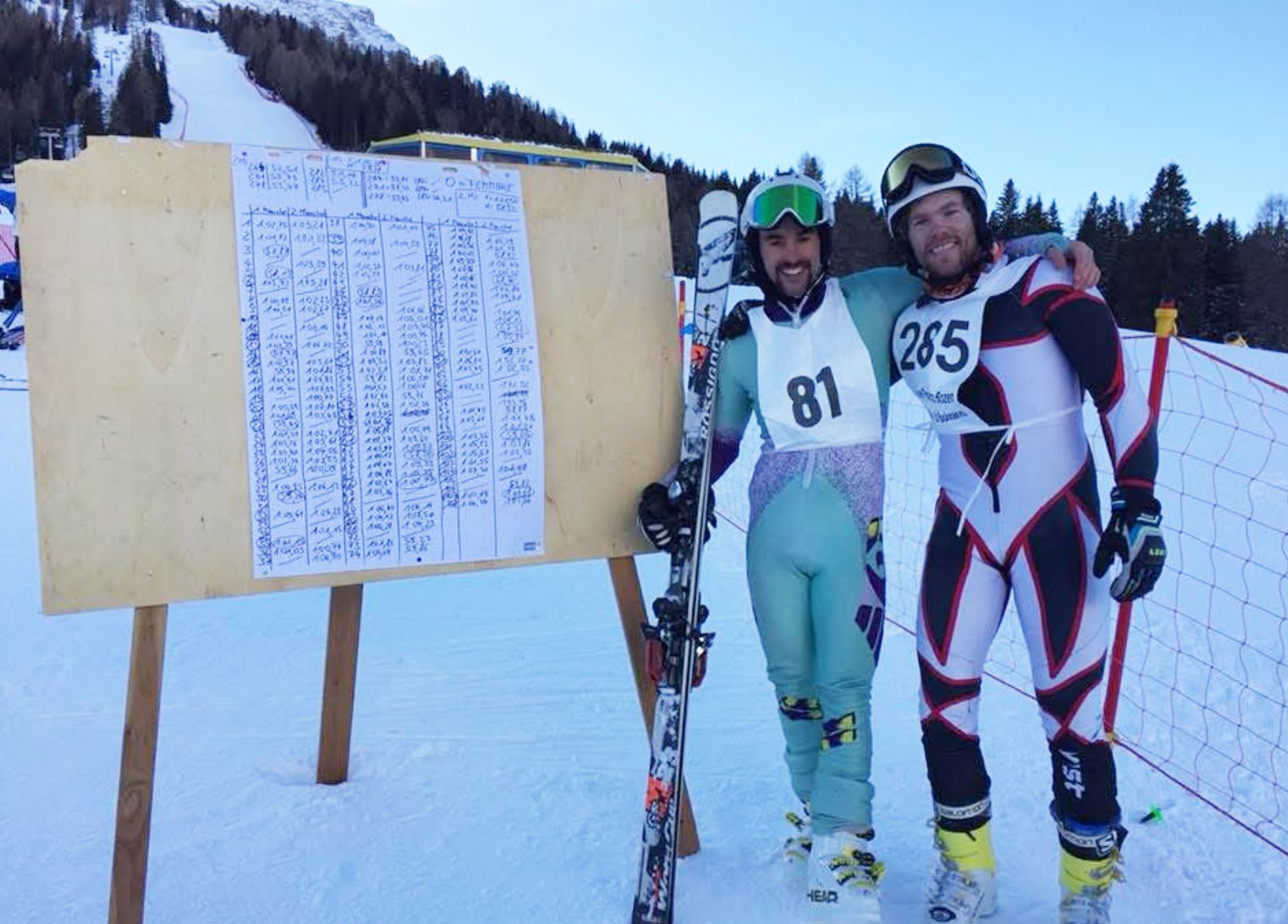
I'll be the first to admit that my ski technique is far from perfect. I was always more interested in off-piste exploration than on-piste accuracy. I managed to get through my technical examinations, but there are many piste-orientated instructors out there with far superior technical abilities to mine.
To me, skiing is about having the skills to explore beautiful places rather than looking perfect on a track. That means managing variable snow conditions in off-piste environments, which is certainly my favourite type of skiing. It's about experiencing nature and enjoying the view as much as it's about the sheer fun of sliding around on snow.
More recently, I have finally made use of my academic background in physical geography and combined it with my passion for off-piste skiing to build an online course in mountain safety and avalanche awareness. One of my best friends died skiing when we were 26, so I've witnessed first hand how devastating that is to family and friends. Unlike our north American neighbours, Europe doesn't have any continent-wide avalanche training curriculums, in part down to language barriers between Alpine and Scandinavian nations. I have therefore been working hard to build and deliver safety and avalanche training courses in English in Les Portes du Soleil, as well as partnering with BASI to supply my online course as a CPD option to ski and snowboard instructors. I am proud to have taught and refreshed the avalanche safety knowledge of over 400 ski and snowboard instructors over the past two winters and you can see their feedback on the training here.

One of my favourite photos since it encapsulates many of the skills I had been working on for years - in skiing, photography, terrain analysis and backcountry snowsport preparation. The skier is my friend Ben Brian and I am the dot on the ridge at the top, flying the drone to take the photos before making a second track a few minutes later.
Our short film about an attempt to hike, ski and film Scotland's 10 biggest mountains in one weekend...
I have always really enjoyed photography and making ski videos, which has led me to where I am at with Alpine Tutorials. I love capturing & sharing what I see in the mountains, and I'll leave you with a few favourites.
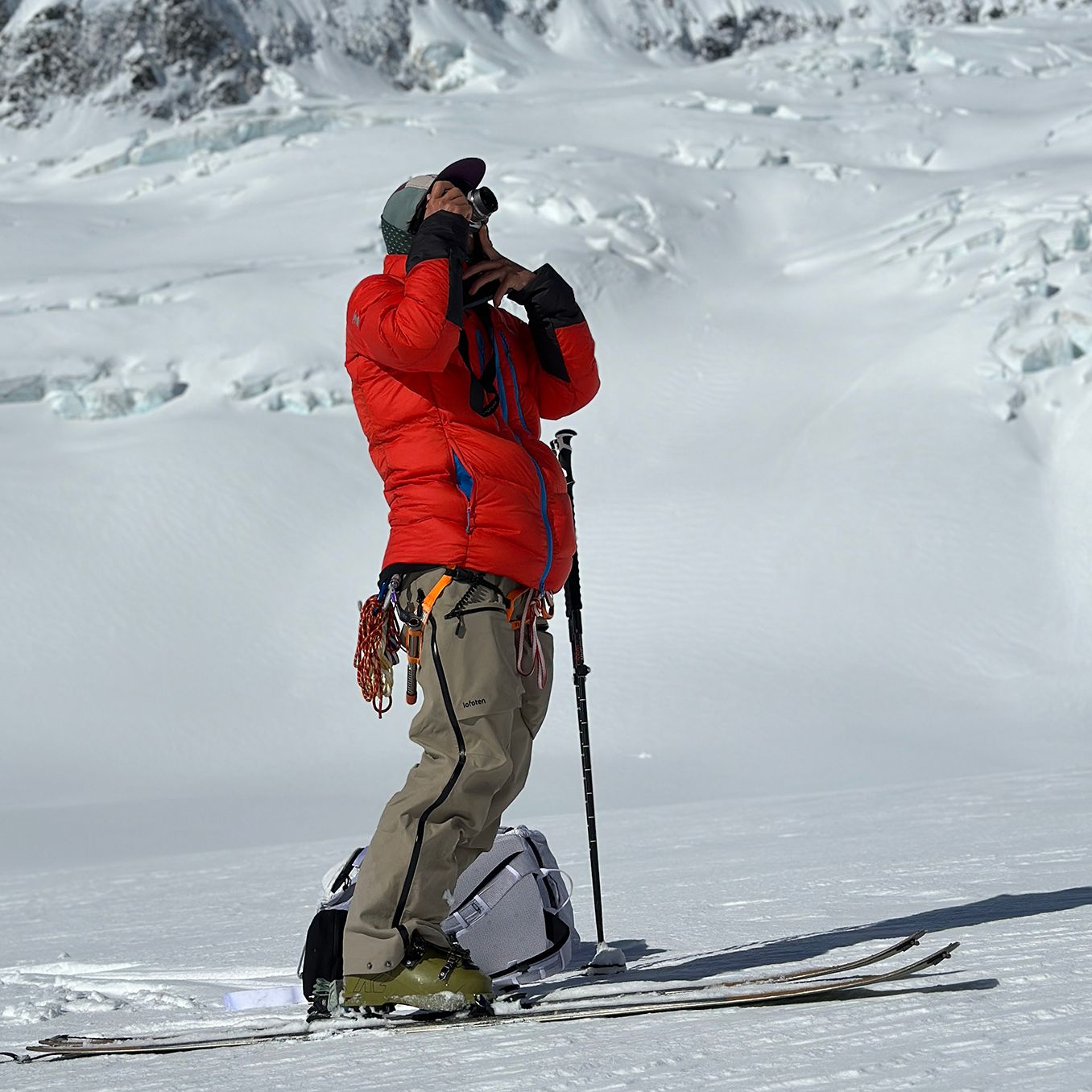

Camping on the summit on Pointe Nyon above Morzine in April a few season back to take some night photos and test out the new sleeping bag. I can confirm, it was definitely cold.
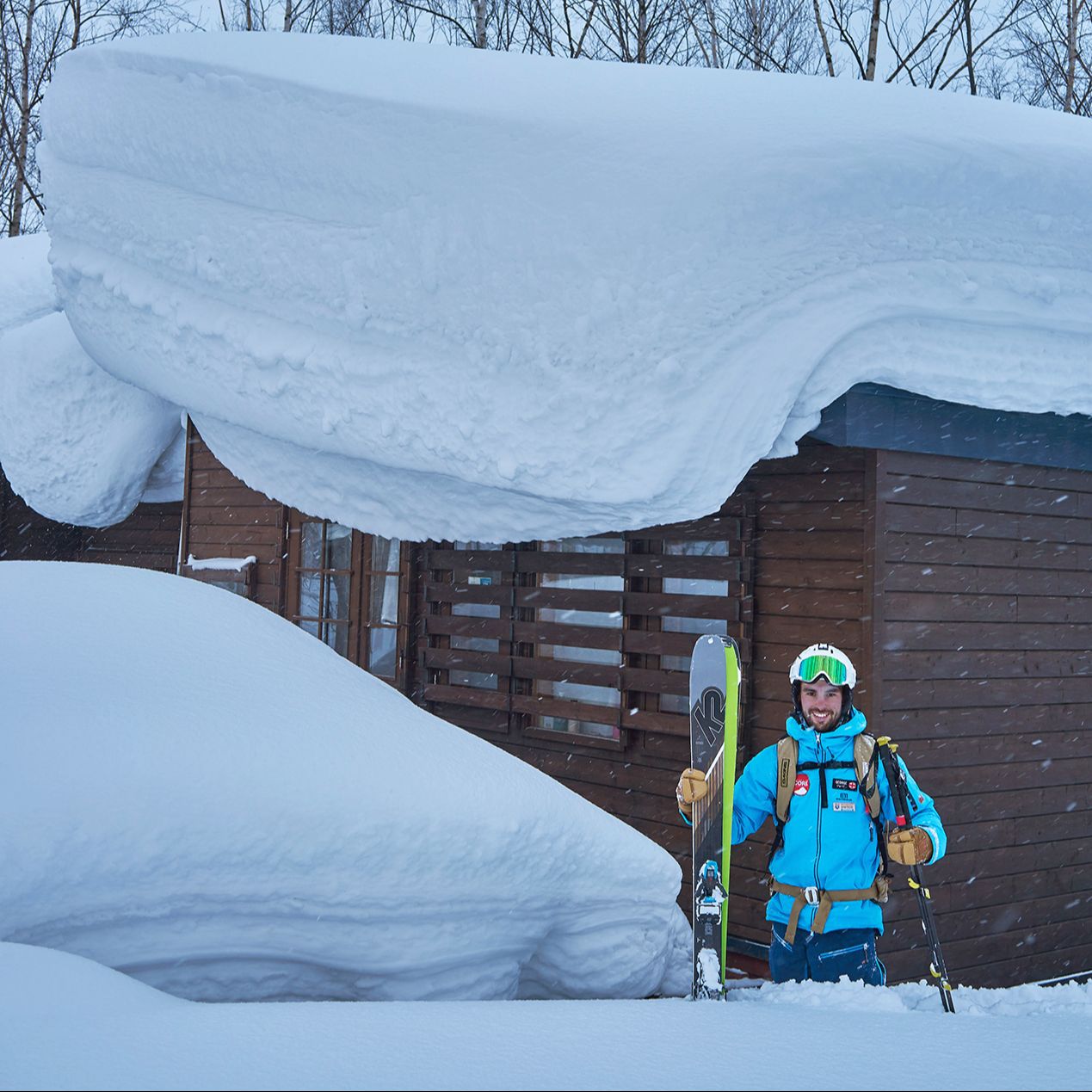
I worked a couple of seasons for Hokkaido Core snowsports in Japan in 2019 & 2020. The below photo I took while night skiing under a full moon, with Mount Yotei in the background. The Sunrise photo beneath was taken half way up the Yotei volcano a few days later, when we managed to reach the summit and ski down into the crater.
